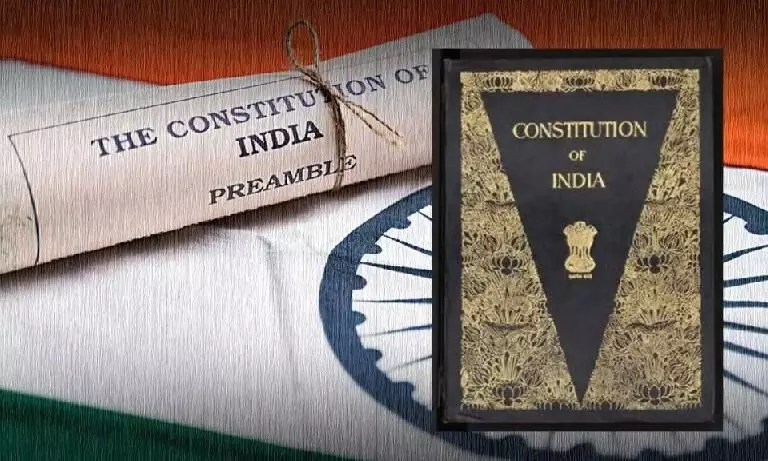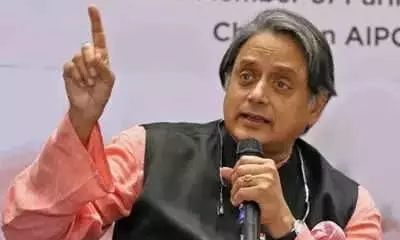
Protection of democracy itself is the nation's lifeline
text_fieldsThe backdrop of President Draupadi Murmu taking special interest in condemning the state of Emergency imposed on the country by the then Prime Minister in 1975 in her speech before the joint session of both houses of Parliament, is not at all mysterious. It is clear that it was aimed as an indirect defence against the upholding of the Constitution and democracy by Rahul Gandhi, the leader of the opposition, and his Congress Party. And the resolution, which was introduced immediately after Om Birla was elected as Speaker for the second time, was also apparently an attempt to implicate the Congress. The Lok Sabha Speaker, who asked the House to observe silence in memory of those who suffered during the Emergency, did not forget to recall that 25 June 1975 was a dark chapter in India's history. "On this day, the then Prime Minister Indira Gandhi imposed an Emergency in the country and attacked the Constitution made by Baba Saheb Ambedkar," Om Birla reminded, through an extraordinary resolution, certainly keeping the current political situation in mind.
At the same time, the historical fact that the RSS was at the forefront of voting in favour of Indira's son, Rajiv Gandhi, in the elections held after Indira Gandhi was shot dead by Sikh bodyguards in retaliation for the military action at the Golden Temple, has been completely forgotten. Nevertheless, it should not be forgotten that Indira's action of declaring internal Emergency for the first time in the country's history, in the face of a possible threat to her power and the position of Prime Minister, was an attack on constitutional principles and democracy. She suspended fundamental rights, jailed all opposition leaders, allowed freedom of action only to her party, imposed censorship on the media, gave free rein to eulogists and supporters, and banned organizations that were unfavourable to her. The dictatorship, which continued for two years in this manner, was thrown out by the Indian people at the very first opportunity they were offered. Indira Gandhi had to say that her actions would never happen again. But the relevant question now is whether Narendra Modi and the Sangh Parivar, who have no remorse or second thoughts in implementing an undeclared state of Emergency in the country for the past ten years, have any moral right to be concerned about the denial of democracy and to ask the country to be cautious. Narendra Modi does not wonder why he did not get the four-hundred-plus seats he claimed in the 18th Lok Sabha elections or why the people did not even give him an absolute majority to rule alone.
Modi, who is fortunate enough to be sworn in as Prime Minister for the time being only thanks to the support of the TDP and JDU, which in no way support the Hindutva nation-building envisioned by the RSS, is showing no signs of changing his style or stance he has maintained so far. The election for the Speaker is a clear example of that. What kind of democratic morality is it that the strong opposition with 234 MPs was not given the post of Deputy Speaker, traditionally given to the opposition? Even the assurance given by the INDIA bloc that they would support the Speaker candidate of the ruling party, if they were granted the post of Deputy Speaker, was not considered. The President, who boasted that the people of India have shown full faith in democracy, had to conveniently forget the fact that the Prime Minister's biggest setback was his series of attacks against the country's largest minority of about 20 crores antagonising them. The people should assume that the non-inclusion of even one member from that community in the council of ministers is in the interest of democracy ! In this situation, the lifeline for the people of India henceforth consists in showing a determination to take President Murmu's call literally that 'we must collectively reject any attempt to undermine the credibility of our democracy'.


























